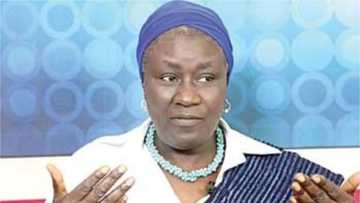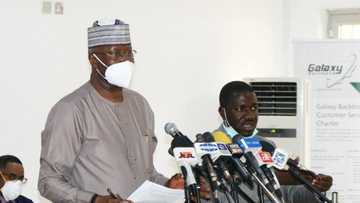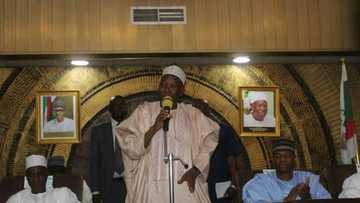New electricity tariff regime begins July - FG reveals
- The federal government says the new increment on electricity tariff will take off in July
- The government says it is going ahead with the plan because the impact of COVID-19 had also affected its plans for the power sector
- Before now, the organized labour expressed discontent with the introduction of the new tariff
PAY ATTENTION: Click “See First” under the “Following” tab to see Legit.ng News on your Facebook News Feed
Engineer Sale Mamman, Nigeria's minister of power, says the new increment on electricity tariff will take off in July.
Mamman disclosed this on Tuesday, June 16 when he appeared before the Senate committee on power.
He said the government is going ahead with the plan because the impact of the COVID-19 pandemic had also affected its plans for the repositioning of the electricity market toward financial sustainability.
He revealed that the Nigerian Electricity Regulatory Commission (NERC) had initially planned to conduct a tariff review in April 2020.

Source: Twitter
PAY ATTENTION: Get the Latest Nigerian News Anywhere 24/7. Spend less on the Internet!
“Indeed, the prevalence of the pandemic has already reduced productivity due to the strategy adopted globally to contain it.
“This by default affects the purchasing power of consumers and the demand for electricity in general.
“The current situation in the Nigerian power sector is that a lot of capital investment is being made, most of which is dependent on donor funding, loans and budgetary allocation.
“For projects that we have already secured their funding, we do not expect any adverse effect,” he told the lawmakers.
He, however, said his ministry was proactively seeking strategies to identify projects that would require counterpart funding in the face of dwindling national revenue so as to deliver within the projected timelines.
He added that the power sector was also grappling with the challenge of infrastructural misalignment, market inefficiency, transparency, sector governance, policy coordination, increase energy access and completion of legacy projects.
Before now, the organized labour expressed discontent with the introduction of the new tariff.
Labour described the hike as a daylight robbery, considering the epileptic power supply in the country.
Some industrialists and civil right groups have also lamented the huge estimated bills which according to them is not justifiable.
Many Nigerians have also said it the new tariff won't translate to 24 hours non stop power supply, then it is not worth it.
Many have also said the increase in tariff is directly proportional to the decrease in availability of electricity.
Some others have accused the federal government of being insensitive to the plight of Nigerians. In other climes, governments are putting up palliative measures, stopping interest rates and payments on loans amid the pandemic.
Generally, Nigerians are moving towards solar energy as the country's epileptic power supply has gone from bad to worse in the last 5 years.
Experts are hoping Nigeria can take a cue from Germany which has invested over $200 billion in renewable power over the last few decades, primarily wind and solar.
During times when electricity demand is low - such as weekends when major factories are closed, or when the weather is unseasonably sunny - the country's power plants pump more electricity into the grid than consumers actually need.
Democracy Day: Nigerians lament bitterly over governance | Legit TV
Source: Legit.ng




